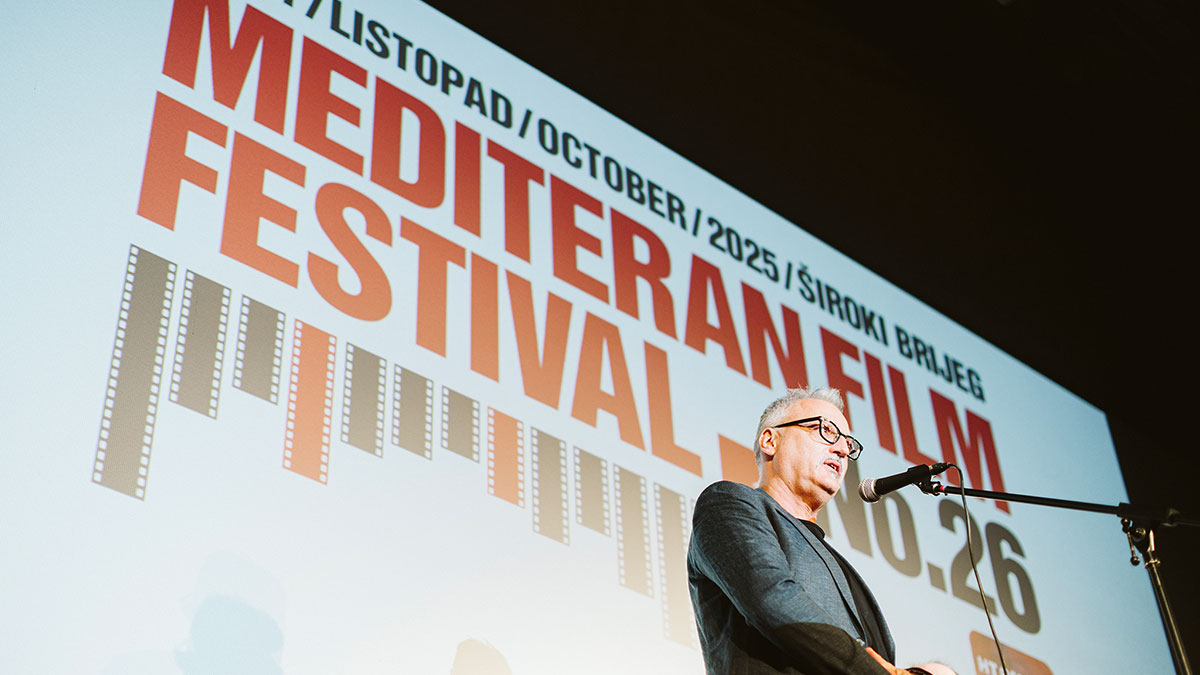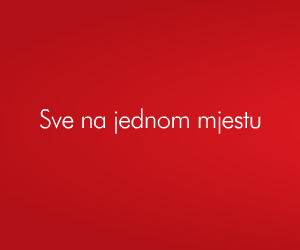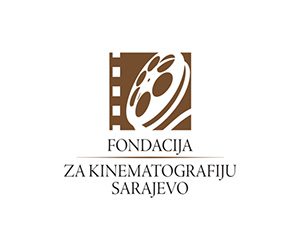
08/10/2025
Rundek and Sacher are not just the “founders of the band”, they are two different universes that collided and created Haustor
Croatian director and scriptwriter Arsen Oremović is coming back to the Mediterranean Film Festival after 12 years, where he presented his directorial debut “Married to the Swiss Franc”. For him, returning to Široki Brijeg means returning to “point zero”, because that's when he began his film journey. In this interview, Oremović recalls his early steps in documentary filmmaking, talking about how his approach and interests have evolved over the years – from activist journalism to in-depth explorations of artistic creation. The film “Third World” is not a standard music documentary, but an attempt to capture the creative process and the dynamics of the band Haustor, with a special focus on Rundek and Sacher, their opposite approaches, and creation of a “third world”. Oremović explains why he decided to move away from the classic biographical format and how the film emerged through a blend of intention and a process that evolved during the filming.
You are coming back to the Mediterranean Film Festival after 12 years, when you presented your directorial debut “Married to the Swiss Franc”. How do you feel about that return, and how would you compare your journey in documentary making today with those initial steps back then?
Return to Široki Brijeg for me is actually a return to a kind of “point zero”. “Married to the Swiss Franc” was my first film, and back then, I didn’t know where documentary filmmaking would take me. Today, after twelve years, I can say that my journey has taken me in various directions – from socially engaged stories to those that enter the very core of artistic creation. The difference lies largely in the approach: back then, my work was, both consciously and deliberately, infused with activist journalism, whereas today I am more interested in exploring poetics. Likewise, filmmaking was a parallel territory for me back then, but for years now, it has been my main and only field, alongside journalism.
The film “Third World” is not a standard music documentary, but, as you put it, an attempt to capture Rundek and Sacher’s spirit and creative process. Why was it important for you to move away from the traditional format of biographical documentary?
I didn’t want to make a classical biography of the band because I have never been interested in that. You can list dates, albums and concerts, but that says nothing about the inner dynamics and creative energy that drives people. Rundek and Sacher are not just the “founders of the band”, they are also two different universes that collided and created something third, called Haustor. That was my focus – to capture that spark, that third world, and not to put together a chronology.
In the film, you often depart from linear storytelling and give space for fragments, atmosphere, and parallel perspectives. To what extent was this result of a deliberate intention, and to what extent did it emerge naturally during the filming process?"
The fragments, parallel perspectives, and atmospheric elements weren’t planned as a formal structure, they emerged naturally, as the film also deals with a band whose inner dynamics are anything but linear. This structure of the film reflects their way of being: nothing went smoothly, everything was in counterpoint. And the filming process itself was the same, because we would work for a while and then take a pause for a long time, and then work again. Yet these pauses weren’t moments of inactivity, but rather periods of reflection and a search for meaning within it all. And precisely because of that, we ended up capturing moments we couldn’t have imagined at the start, which is that the band ended up in the studio together again. In that sense, intention and process became one."
Your work oscillates between socially engaged themes and explorations of artistic processes. Could it be said that in both cases you are actually exploring the same thing – the human inner struggle and creative energy?
It can be said that both social and artistic themes for me come down to the same question: what drives a person from within, where the energy comes from to deal with a problem or to create something new. In the first case, these are existential struggles, and in the second, creative ones. But behind both lies the same need — to survive, to find meaning, to express what would otherwise remain unspoken. The documentary is simply a mirror of that process, regardless of the theme.
The album “Third World” is often mentioned as one of the key musical achievements of YU-rock. How did you, as the author of the film, seek a balance between respect for that legacy and the need to create your own authorial perspective?
Respect for the album "Third World" goes without saying — it is a part of music history, not only for Haustor but for the entire scene. But I didn’t treat it as some exhibit on a pedestal, after all, this is an album from my time, when I bought it "normally", and that’s how I treated it. So, I didn't treat it as a relic, but tried to show how it was created, in what tensions and contradictions.
How much did your punk youth and experience with the band Blitzkrieg influence the way you enter the world of musicians with such understanding and passion today?
My punk youth and Blitzkrieg are not important only because I “played in a band”, but because I experienced from the inside what it means to fight against my own limitations and the power of the collective. In my case, music was always the first interest – the band came later as a result of that interest, as an attempt to put into practice what had been occupying me for a long time. That experience later guided me in film as well — in “Third World”, but also in “Castle Crash”, where I followed Matej Meštrović and Sudar Percussion during the recording of an album. In both cases, I wasn’t interested only in the final result, but in the process itself — how something that will eventually sound solid and self-evident can emerge from chaos and uncertainty.
Rundek i Sacher represent two opposite approaches - improvisation and freedom versus discipline and structure. Was it more important for you during the filming to capture their differences or the moments when they harmonise and create a "third world"?
Both were equally important. The differences were often a bigger challenge off camera, because I had to adapt to each of them, learn their specific ways of functioning. Rundek protects his space by remaining somewhat "elusive", he withdraws when he feels someone might try to define or limit him. Sacher, on the other hand, goes in directly and without compromise, insists on his approach, and often forces his surroundings to react to him. These are two opposing strategies, but it is precisely in the collision of these energies that something emerges which, both in the film and in their music, is recognised as the ‘third world’.
Are there any anecdotes from filming that you would like to single out?
There isn’t a classic anecdote in terms of funny stories from filming, but there is one situation that stuck with me. We were at my place, and I showed them how I had visualised one new song they had just played in the film. Neither of them usually likes music videos, and they make it quite clear. So I felt literally squeezed between two of them while the song, still in a raw, unfinished version, was playing on the screen. When it finished, Rundek just stood up and said: “OK, we have the music video, we just need to finish the song”. I couldn’t believe it – I was relieved. That scene made it into the movie, exactly as it happened. The irony is that they never actually finished the song.
The films "Castle Crash" and "Third World" seem to be completely different, but both delve deeply into the process of creating music. What is it that you personally find most intriguing about the moment when an idea turns into sound, and sound into emotion?
For me, the most intriguing moment is when something invisible starts turning into sound. This is the moment that actually has no explanation - you can describe it and analyse it, but you can never fully "capture" it. In "Castle Crash" this was the moment when the ensemble enters a completely new territory, and together, discovers where the music will take them. In “Third World” these moments are Rundek and Sacher, who build a shared space out of their contrasts. In both cases, it is pure alchemy: something suddenly arises out of thin air, out of silence, that grows into an emotion. This is maybe the most fascinating dimension of music – its ability to create a real feeling out of nothing.
Audiences often expect a documentary to “explain” and “organise” the facts. You, on the other hand, have chosen to give the viewer the freedom to connect the dots themselves. Do you believe that a documentary filmmaker has a responsibility to guide the audience, or is their role to open up space for personal interpretation?
I don't think a documentary filmmaker has to explain and arrange facts – that's the job of a textbook. A documentary should open up space for the viewer's experience, for their feelings, and for their own interpretation. If you arrange everything in advance, you close off space for imagination. For me, it's more important to offer elements, fragments, and atmospheres from which the viewer can create their own image. That's riskier because it requires a more active audience, but that's exactly why I think it's more powerful.
As a long-time journalist and film critic, you are now both an author and a director. How much does the previous experience of film analysis help you, and how much does it hold you back because you are aware of the "rules" that you are now trying to break free from?
In fact, it's hard to precisely separate what comes from my experience as a critic and what comes from my later work as a director. What I do know is that my biggest challenge in directing was to let my intuition guide me, and not constantly intervene as my own critic. As a journalist and critic, I've seen all kinds of films, and I've learned from that that rules are not something


